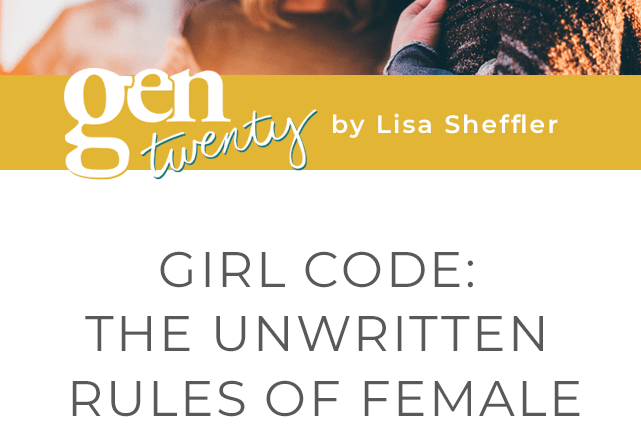Sometimes unsolicited advice or criticism can end a long-standing friendship. As in any relationship, it has its own nuances and dangerous moments. What are the unspoken rules of female friendship, we find out together with clinical psychologists Shoba Srinivasan and Linda Weinberger.
Anna and Katerina are old friends. They usually have lunch together once a month, and Anna tends to openly share what is happening in her life, while Katerina is more reserved, but always ready to respond and give useful advice.
This time it is noticeable that Katerina is under stress – literally at the limit. Anna begins to ask her friend what the matter is, and she breaks through. Katerina’s husband, who had never stayed long at any job before, now decided to devote himself completely … to writing a novel. Under this pretext, he does not work, does not take care of children, does not take care of the housework, because this “interferes with creativity.” Everything fell on the shoulders of his wife, who is forced to spin at two jobs, raise children and take care of the house.
Katerina took everything upon herself, and this terrifies Anna. She directly expresses her opinion that her friend’s husband is not a writer, but a parasite who simply uses her, and is not able to write anything good himself. She even states that her friend should file for divorce.
Lunch is interrupted by a call from her husband – something happened at school with one of the children. Katerina breaks down and leaves.
Later that day, Anna calls her to see if the baby is okay, but the friend doesn’t answer. No calls, no texts, no emails. This is how week after week goes by.
Friends, even old ones, can be more easily replaced than other close ones.
Medical college professors, clinical psychologists Shoba Srinivasan and Linda Weinberger cite this story as an example of breaking the unspoken rules of female friendship. Referring to research by psychologists and sociologists, they argue that there are rules in friendships, many of which are related to loyalty, trust, and behavior, such as keeping commitments. These “rules of interaction” ensure stability in relationships.
The researchers found that women tend to have high expectations of their friends – more so than men – and demand high levels of trust and intimacy. The level of intimacy in female friendship is determined through peculiar “rules of disclosure”. Thus, close friendship involves the exchange of feelings and personal problems. But the norms for such “rules” can be ambiguous. And when such a rule is violated, friendship can be in danger.
Breaking up a relationship that seemed close can be both painful and incomprehensible to the other side. Openness, desire to spend time with each other and provide emotional support are aspects of close relationships. Anna believed that she and Katerina were close friends, because she was used to telling her about her problems and getting advice.
What did Anna do wrong? Psychologists believe that she violated the unspoken rule of their friendship: Katerina was the one who gives, not receives advice. Anna also intruded into a very significant, personal area of her friend’s life: she voiced the fact that Katerina married a difficult man, and in doing so, threatened her sense of self.
Some friendships may seem strong but are actually quite fragile. This is because friends, even long-term ones, can be more easily replaced than other close ones, such as relatives or romantic partners. Therefore, intimacy in friendship is changeable. Its level may depend on the context: for example, increase during periods when people have common activities or interests, when both parties are at the same stage – for example, they are single, divorced, or raising young children. Intimacy in friendship can wax and wane.
Psychologists suggest taking into account the unwritten rules of friendship:
- If you are going to give your friend peremptory advice on solving her problem, you should think about whether she needs it and how she can take your words.
- Not all friendships involve a high degree of frankness, revealing personal issues or feelings. It happens that we enjoy spending time together without having heart-to-heart conversations, and this is normal.
- Sometimes disclosure-based intimacy is one-way, and that’s okay too.
- It may be more convenient for a friend to be an adviser rather than receive advice. Don’t try to strike a “balance”.
- Don’t confuse the need to be heard with asking for your opinion.
- The duration of an acquaintance is not an indicator of intimacy. A long period of communication can give a false sense of intimacy.
Unless a friend is in danger due to domestic violence, don’t criticize her spouse.
- We don’t need to take responsibility for threatening a friend’s sense of identity, even if we believe it’s better for her to acknowledge her weaknesses (unless, of course, this has already become part of the relationship, when both friends appreciate each other and are ready to accept such judgments as well). A friend is not a psychotherapist.
- No need to point out or blame a friend for not changing anything in the situation after she received our advice.
Unless a friend is in danger due to domestic violence or emotional abuse, do not criticize her spouse or partner:
- especially if we personally do not like it (our feelings in this case will be obvious),
- even if we think we are giving a legitimate analysis of her partner’s behavior,
- unless such a format for exchanging information about partners has already become an established bilateral aspect of friendship.
Friendship is important for our psychological well-being: it satisfies the need for affection, belonging, and identity. It has many subtle settings: the level of comfort of each, the degree of openness and delicacy. Understanding the unwritten, unspoken rules in a relationship can save a friendship.
About the authors: Shoba Srinivasan and Linda Weinberger are clinical psychologists.










